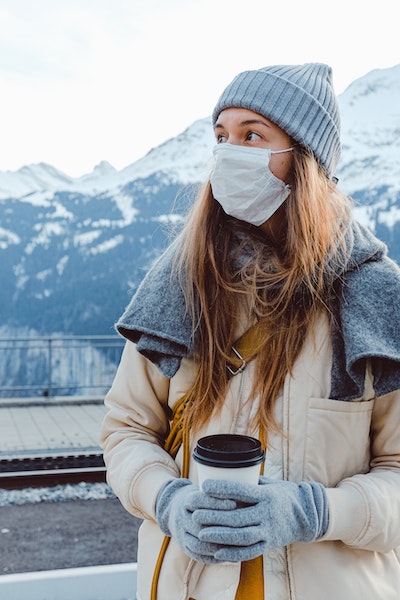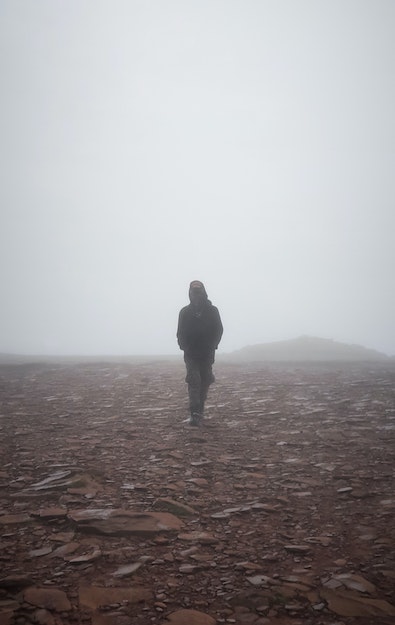I cannot stress enough how awful the COVID-19 pandemic has been for most people in so many ways. So many of us, as well as our loved ones, have become horribly sick or have even lost their loved ones. In addition to that, the pandemic has enormously impacted countless people’s mental health. Businesses have also had to permanently close, due to financial hardship and/or lockdowns, resulting in entire areas being shut down in many parts of the world.
While I am certainly not happy that all this has happened, I do want to share some good things that have happened because of the pandemic.
I am doing this in the hopes of helping people to feel less pessimistic about it, even if it’s only to a slight extent, to help people accept the current situation (regarding the pandemic). Accepting the current situation is going to do a lot more for us than resisting it and living in the past ever will.
Personally, I have found that consistently reminding myself of the following points have helped me tremendously to evade excessively negative states of mind, and I truly hope they will have the same effect for you.
Table of Contents
- We have become more aware of how we manage our time (and hopefully more skilled at it):
- We have become more self-aware in general:
- We are specifically becoming more aware of our relationship with solitude:
- We are taking self-care more seriously:
- We are becoming bolder and more courageous:
- We are spending more time outdoors:
- We feel more gratitude:
We have become more aware of how we manage our time (and hopefully more skilled at it):

The pandemic has made me much more conscious of where I put my time. Working in the comfortable and relaxing environment of your home requires so much more discipline and time-management skills than working in an already structured environment, like a typical office setting, where there are little to no distractions around us, there are very clear deadlines and task assignments, and we can clearly see everyone else being productive (which motivates us to be productive via social accountability).
As a result of these changes, there is now an increased need for these skills. Without having that additional environmental structure, and unless we develop these skills, it is so much easier to get distracted and remain unfocused in the freeing privacy of your own home.
Having complete control over how we manage our time forces us to have no choice but to become increasingly aware of how we use our time, which blatantly highlights any struggles we might have with it. Whereas in a formal work setting, these areas of struggle are often masked by the many productivity-boosting aspects of the environment.
Hopefully, this increased awareness is resulting in us actually becoming better at managing our time, but even if that’s not the case for most of us, at least we now have a better idea, more or less, of where and how we can improve. While it might not seem like a big deal, possessing this knowledge can actually be a very useful and wonderful sign that we truly are growing (but perhaps extremely slowly!) and are on the right track, as the very first step to lasting change always begins with the simple awareness that there is room for improvement. After all, making long-term improvements in your life doesn’t happen overnight and there is often a steep learning curve involved.

I know I definitely had many days where I would just do nothing, and this phase lasted longer than I’d like to admit. But the important thing is I was eventually able to overcome it, which was just a matter of recognizing my areas of struggle, coming up with small, simple strategies that could help me in these ways, and sticking to them consistently.
For example, I started imposing a time limit on getting ready in the morning, even on days where I had nowhere to go, since I found that I frequently wasted most of my time in the mornings, spending a lot of it either on my phone or chatting with those who live with me.
If you also struggle with time management, you can easily figure out where most of your time is going by using time tracker apps on your phone and/or your computer, to enhance your awareness of your time even more, so that you can become more intentional with it.
On my phone, I use RealizD to track my screen time, which is FREE.
On my computer, I use a FREE screen-tracking chrome extension app called Intention.
We have become more self-aware in general:
Increased time and opportunities to self-reflect have allowed us to become increasingly aware of our internal experience of the world. Specifically, many of us now have a better idea of how we feel about the way we are living our life, if it’s in need of a change, and what exactly we are doing in our life that increases our energy, versus what drains it. Again, this increased awareness—whether it involves discovering good things about ourselves or bad things—is truly a blessing, as it’s a necessary precursor for positive self-transformation.
We are specifically becoming more aware of our relationship with solitude:

What is your relationship with time spent alone like? Does it feel healthy, refreshing, light, natural, and necessary, or does it feel depressing, claustrophobic, heavy, toxic, and empty?
Unfortunately, practically everyone is far too well-acquainted with their responses to these questions, as a result of the increased amount of time spent alone at home.
If your relationship with solitude feels toxic, this may signal a need to work on the quality of your thoughts so that you can enjoy the time you spend with yourself more.
Many people unrealistically expect happiness to be something they can stumble upon effortlessly. However, even those with the most fortunate lifestyles often end up being miserable, as our state of mind has little to do with outside circumstances, and is almost entirely an internal dilemma. The fact of the matter is that everyone needs to constantly work on the state of their mind and spirit to keep it strong and healthy, so there is no shame in giving it the attention it both needs and deserves.
We can tend to our mental health by regularly engaging in self-care practises that nurture our mind, emotions, spirit, and body, which leads to my next point.
We are taking self-care more seriously:
This relates to the last point, as becoming more aware of one’s mental health can emphasize the necessity, importance, and value of nurturing oneself through the practice of self-care. Many people I know are starting to take self-care more seriously because the pandemic happened and they’re becoming more aware of their burn-out, as well as their harmful and negative thought patterns, which they are now seeing need to change in order to improve their quality of life. This might have never happened if it weren’t for the pandemic.
I wrote a post about financially accessible self-care practises that seem to be the most beneficial from a holistic perspective, with a special emphasis on practises that predominantly target the mind, emotions, and spirit, which you can read here.

We are becoming bolder and more courageous:
For many of us, not being in the public eye as much, and hence being exposed to less scrutiny from the outside world, can be quite a blessing. With the greater amount of privacy and time allotted to us due to remote work and more time spent in the comfort and safety of our home, many of us feel more free than ever before to explore and experiment in different ways, whether it’s with starting a new business venture, going on a very adventurous and/or risk-taking trip, or simply trying out new, bolder looks or hair colours.
These changes can cause us to feel more alive, spontaneous, inspired, spirited, creative, and free, as well as in awe of all the abundance, opportunities, and beauty around us, which we might not have noticed as much before.
We are spending more time outdoors:

We are spending significantly more time outside in nature than we normally would because so many places have shortened hours or are closed due to the pandemic, providing us with much fewer options in terms of places and events to attend that aren’t outdoors. This has especially been the case when entire cities—let alone provinces/states, or even countries—have been in lockdown.
This has caused many of us to develop a stronger appreciation for nature. One person I know who never thought he would ever want to go camping now wants to go camping and do outdoorsy things all the time!
We feel more gratitude:
The pandemic has taught us to value and appreciate the little things in life that we may have taken for granted prior to the existence of COVID-19.

Especially when the pandemic was more serious and vaccines weren’t yet publicly available, some of the many things we realized we missed dearly during that time included being physically present at work or in school, dining at cafes and restaurants, and even just being able to touch and be closer to things and people, which enhanced our experience of them (for one thing, it’s definitely harder to hear people through a mask and/or a face shield). Many of us even missed things we thought we hated, like our commutes to work. Luckily, however, most of these things have since gone back to normal in many countries.
We now also feel more gratitude for the things that are still available to us, but are less frequently experienced because of the pandemic. For example, I miss how much longer stores used to be open pre-pandemic, so when I come across a store that has longer-than-normal hours, I tend to notice it and appreciate it more than I used to before. And because stores often close sooner than they did before, we now have to be more intentional with how we plan our time, (as I’ve mentioned in my first point), otherwise we might not be able to complete all our errands in time before places close.
We might have never noticed how much happiness we derived from these so-called “little things” if the pandemic hadn’t prevented us from experiencing them to some extent. So when we are lucky enough to experience them again—especially now that things are slowly picking up and are returning back to normal—our appreciation for them is consciously felt, and on a whole other level, as well.
What aspects of the pandemic have been beneficial to you? Let me know in the comments section below!
Related Posts:
Disclaimer: Some of the links on this site may be sponsored, meaning that I may earn a small commission or other compensation from them at no additional cost to you. All the content on this website is intended for informational purposes only, based on my own personal experience, ideas and knowledge. It is not intended to replace the advice of a qualified professional. In the case of a mental, emotional or physical emergency, please dial 911 or the crisis line in your region immediately.




0 Comments